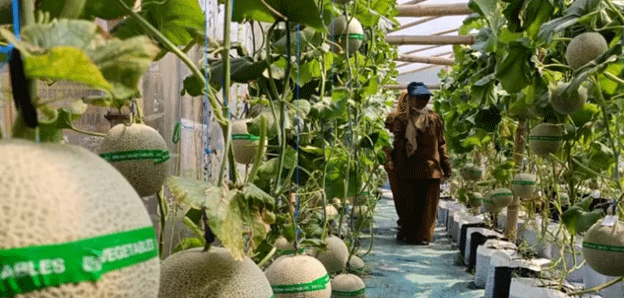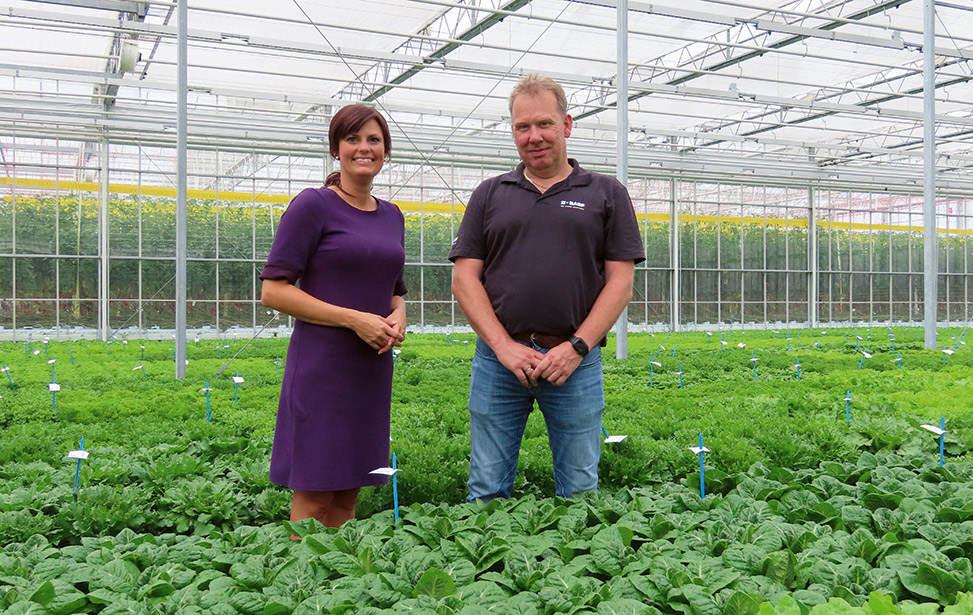Hydroponic melon cultivation is fast becoming a popular solution for farmers with limited land who seek to maximize their yield of high-quality fruits. With this method, fertile soil is no longer a requirement, as plants grow in nutrient-rich solutions that ensure optimal development. One remarkable example of success comes from the village of Samirplapan, in the Duduksampeyan sub-district of Gresik, East Java. Here, local authorities have turned a small 420-square-meter plot of land into a thriving hydroponic melon farm, cultivating disease-resistant varieties that are yielding impressive results.
The hydroponic system utilized in Samirplapan is based on the polybag substrate method, which allows for plant growth without requiring extensive fertile ground. The initiative began after village officials attended a series of training sessions and consultations led by Ahmad Mujtabah, a young farmer from Panceng who had already achieved success with hydroponic melon farming. Supported by the Duduksampeyan Agricultural Extension Office, led by Husni Mubarak, the village launched their project with two greenhouses and a total of 800 melon plants.
The varieties grown—Rock Melon Ceria and Kirani—were specifically chosen for their resilience against common melon diseases, making them ideal for hydroponic systems where close monitoring of plant health is critical. Rock Melon Ceria, known for its sweet taste and firm texture, has gained popularity due to its disease-resistant qualities, allowing for a more consistent and healthy yield. Kirani, another robust variety, offers large fruits, typically weighing between 1 and 2 kilograms per melon. Both varieties have proven to be particularly suited to hydroponic growing conditions, where water, nutrients, and environmental factors can be precisely controlled.
In Samirplapan, the hydroponic farm is yielding two melons per plant, with each fruit reaching marketable size. The controlled environment of the greenhouses ensures protection against pests and diseases, while the substrate method—where plants grow in a medium such as coco peat or rockwool—prevents soil-borne pathogens from affecting the crops. This method also allows farmers to use less water compared to traditional farming methods, as hydroponics recirculates water within the system, significantly reducing waste.
This technique is particularly valuable in areas like East Java, where land is limited and soil quality is not always ideal for high-yield fruit production. The precision of the hydroponic system allows for the careful management of nutrients tailored to the plant’s needs, ensuring healthier growth and larger fruits. Additionally, the ability to control environmental variables, such as temperature and humidity, ensures that crops can grow year-round, providing a steady source of income for the village.
In terms of economic impact, the hydroponic melon farm in Samirplapan has not only supplied the local market with fresh, high-quality melons but has also attracted attention from neighboring regions. Due to the high demand for these fruits, particularly the disease-resistant Rock Melon Ceria and Kirani, the farm has become a model of innovation for other small-scale farmers in East Java, showcasing how even small plots of land can be utilized for profitable agricultural ventures.
The success of this hydroponic melon farm highlights the importance of selecting the right varieties that can withstand disease pressures and adapt well to hydroponic growing conditions. By minimizing the risks associated with pests and diseases, farmers can focus on optimizing their crop management practices, ultimately leading to higher yields and better profits.
The hydroponic melon cultivation in Samirplapan demonstrates how small-scale farmers can achieve significant success with limited land by adopting innovative farming techniques and disease-resistant crop varieties. The precision, efficiency, and scalability of hydroponic systems make them an attractive option for farmers looking to overcome land and soil limitations while ensuring high yields of healthy, market-ready fruits. As demand for fresh produce continues to grow, particularly in urban areas, hydroponic farming represents a sustainable and profitable future for fruit cultivation.












